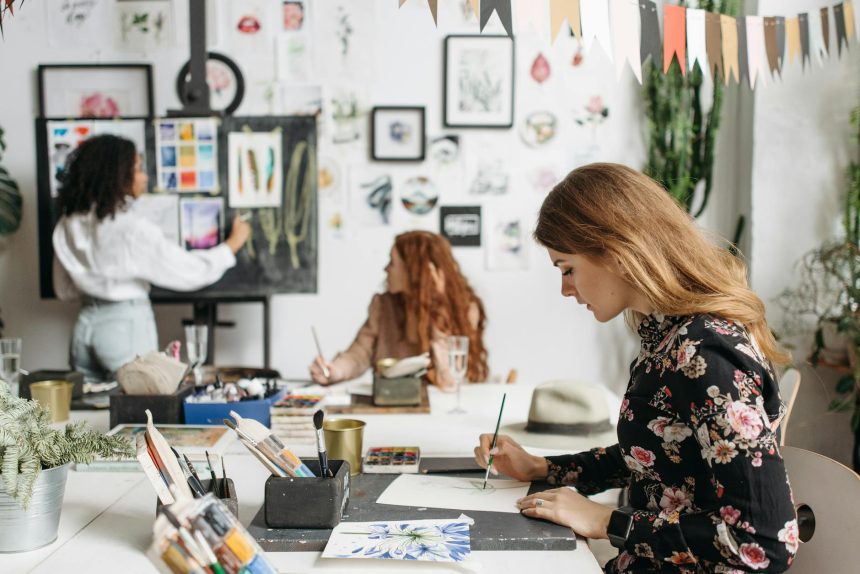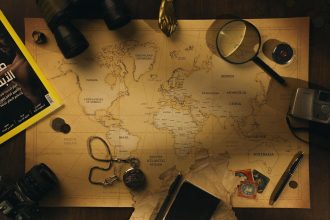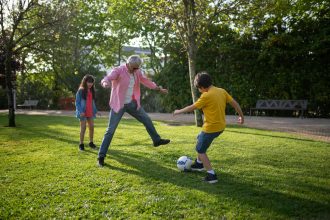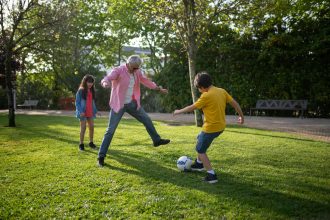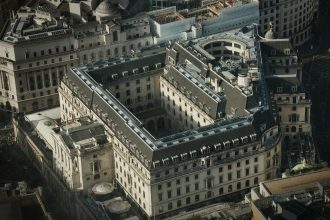ai-in-art-education
AI in Art Education: 5 Ways Schools Are Thriving in a New Creative Era
The landscape of creativity is shifting dramatically. As artificial intelligence continues its rapid evolution, many wonder about its impact on traditional artistic disciplines. Far from being a threat, the integration of AI in art education is proving to be a catalyst, sparking a renaissance in creative learning. Art schools, once perceived as bastions of traditional methods, are now at the forefront of this digital transformation, experiencing a surprising surge in applications. How are these institutions embracing intelligent tools to shape the next generation of artists?
AI’s Evolving Role in Creative Learning
Artificial intelligence is no longer a futuristic concept; it’s a present-day collaborator in the studio and classroom. Creative institutions are recognizing the immense potential of AI to augment, rather than replace, human artistic endeavors. This shift is redefining what it means to create and learn in the visual arts.
Redefining Artistic Expression
AI tools offer artists unprecedented avenues for exploration. From generative art algorithms that conjure entirely new visual motifs to intelligent software that assists with complex design problems, the boundaries of artistic expression are expanding. Students are learning to prompt, curate, and refine AI-generated content, developing a hybrid skill set that merges traditional craft with cutting-edge technology.
Enhancing Skill Development
Beyond generating art, AI can serve as a powerful teaching aid. Personalized feedback systems, virtual mentors, and tools for rapid prototyping allow students to iterate faster and understand concepts more deeply. This accelerates skill acquisition in areas like composition, color theory, and digital rendering, making creative learning more efficient and engaging.
Navigating the Digital Canvas: Challenges and Opportunities
While the opportunities are vast, integrating AI into art education presents unique challenges. Institutions must balance technological advancement with foundational artistic principles, ensuring that students develop critical thinking and ethical awareness alongside technical proficiency.
Ethical Considerations in AI Art
The rise of AI-generated art brings forth complex ethical questions. Issues of originality, copyright, data privacy, and bias in algorithms are now central to discussions in art classrooms. Leading art schools are incorporating robust modules on the ethics of AI in art, preparing students to navigate these intricate landscapes responsibly. Understanding these implications is crucial for any artist working with intelligent systems.
Future-Proofing Art Education
To remain relevant, art education must adapt. This means moving beyond teaching software proficiency to fostering a deep understanding of AI’s underlying principles and its potential applications across creative industries. Institutions are crafting curricula that emphasize adaptability, critical analysis, and interdisciplinary collaboration.
- Developing critical prompting skills for generative AI.
- Understanding algorithmic bias and its impact on visual culture.
- Exploring AI’s application in various art forms, from painting to performance.
- Mastering data visualization and interactive design principles.
Why Enrollment is Surging at Creative Institutions
Despite initial anxieties about AI’s impact on human creativity, many art schools are experiencing a remarkable increase in applications. This trend suggests a growing recognition that human ingenuity, far from being obsolete, is more vital than ever in an AI-powered world.
The Human Touch in an Automated World
As AI handles more repetitive or technical tasks, the value of uniquely human attributes—empathy, intuition, critical judgment, and conceptual innovation—becomes paramount. Students are drawn to programs that cultivate these qualities, understanding that the future artist will be a curator, a director, and a visionary, leveraging AI as a powerful assistant.
Adapting Curricula for Tomorrow’s Artists
Progressive art schools are not just adding AI courses; they are fundamentally rethinking their entire curriculum. They are integrating creative technology skills, design thinking, and ethical AI discussions across all disciplines. This holistic approach prepares graduates for dynamic roles in the creative industries, from game design to interactive installations.
- Innovative program development focusing on human-AI collaboration.
- Increased emphasis on interdisciplinary projects and research.
- Stronger ties with technology companies and creative startups.
- Focus on critical thinking and problem-solving in complex digital environments.
- Promoting a culture of experimentation and continuous learning.
Preparing for a Hybrid Creative Future
The future of art is undeniably hybrid, blending human insight with artificial intelligence. Art education is evolving to equip students with the necessary tools and philosophical frameworks to thrive in this new era.
Essential Skills for AI-Empowered Artists
Today’s aspiring artists need more than just traditional drawing or painting skills. They must be adept at computational thinking, data literacy, and prompt engineering. Furthermore, the ability to collaborate effectively with AI systems, understanding their capabilities and limitations, is becoming a core competency. This new skillset empowers artists to push creative boundaries like never before.
Collaborative Learning with Intelligent Tools
Art schools are fostering environments where students learn to work alongside AI, treating it as another member of their creative team. This collaborative approach encourages experimentation and innovation, allowing for the rapid exploration of ideas that would be impossible through human effort alone. This prepares them for a professional world where AI is an integral part of the creative workflow, from concept generation to final execution.
The transformation of art education is profound, reflecting a proactive embrace of innovation. For more insights into how technology shapes our world, explore resources like Smithsonian Magazine’s Innovation section.
The integration of AI in art education marks a pivotal moment, transforming how creativity is taught, perceived, and practiced. Far from diminishing the human spirit, AI is amplifying our capacity for innovation, driving a surge in interest and applications at art schools worldwide. These institutions are not just adapting; they are leading the charge in defining the future of artistic expression. By fostering a blend of traditional craftsmanship with advanced computational skills, they are preparing a generation of artists ready to navigate and shape the hybrid creative landscape of tomorrow.
What are your thoughts on the evolving role of AI in art education?
Art schools are experiencing a surge in applications as they embrace AI in art education. Discover how creative learning is evolving, preparing students for an AI-powered artistic future.
AI in art education, students collaborating with AI art tools, digital art school studio, AI generative art, human and AI creativity
Featured image provided by Pexels — photo by Pavel Danilyuk


